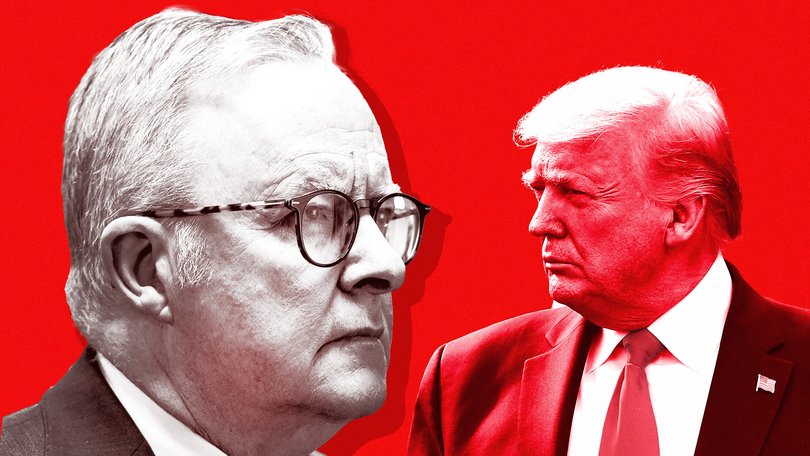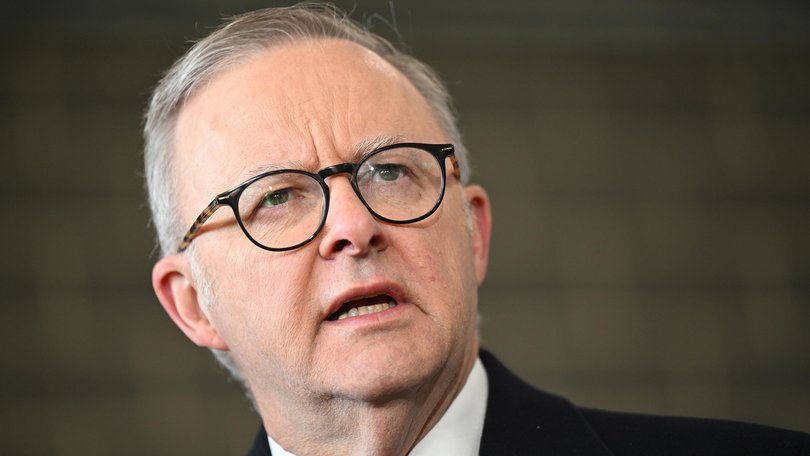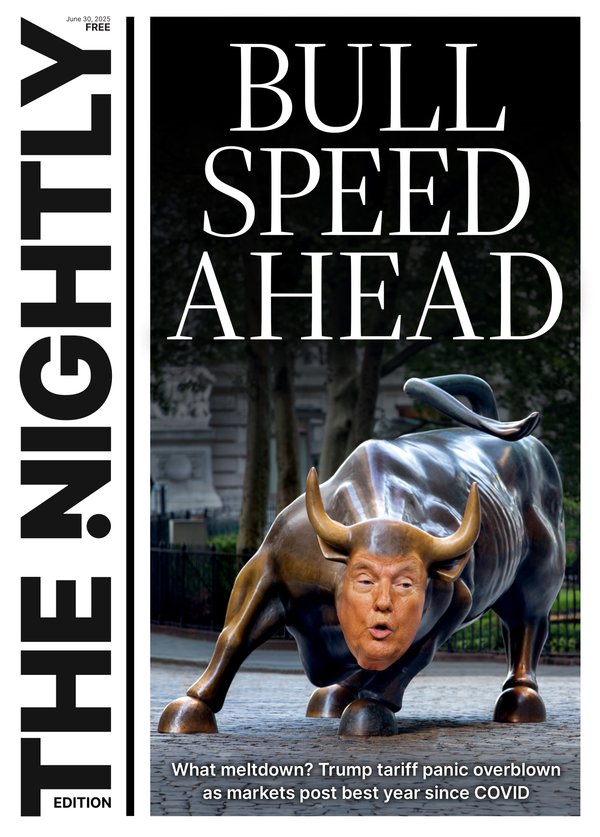ELLEN RANSLEY: Anthony Albanese says Trump’s tariffs should be zero but he’s running out of time to make case

Anthony Albanese is insistent Australia should be exempt from Donald Trump’s so-called reciprocal tariffs, but his Government is quickly running out of time to prosecute their argument.
As Penny Wong heads to Washington meet her Quad counterparts, the Coalition are urging her to come home armed with an invitation for the Prime Minister to meet the US President in the White House and say it’s “embarrassing” that the pair still haven’t met face-to-face.
The call came after Mr Trump indicated his 90-day pause on his “liberation day” baseline 10 per cent tariffs would expire on July 9, and that absent a deal, he will be sending out letters to world leaders “pretty soon” letting them know the final impost rate he’ll place on their countries.
Sign up to The Nightly's newsletters.
Get the first look at the digital newspaper, curated daily stories and breaking headlines delivered to your inbox.
By continuing you agree to our Terms and Privacy Policy.“We’ll look at how a country treats us — are they good, are they not so good — some countries we don’t care, we’ll just send a high number out,” Mr Trump told Fox News on the weekend.
Mr Albanese said Australia has continued to advocate for an exemption, and wouldn’t let up now.
“We continue to put our case forward that it shouldn’t be 10. It should be zero. That is what a reciprocal tariff will be. We have a US Free Trade Agreement, of course, and we’ve put forward very clearly our arguments. We’ll continue to do so,” he said on Monday.
The Government says that is not the action of a friend, and work is ongoing behind the scenes to try and prevent such heavy handedness. But within Government ranks there is a quiet acceptance that there may not be a better deal than a 10 per cent tariff - the lowest rate the President has announced for countries.

Even the trade deal the US struck with the United Kingdom did not totally exempt them from tariffs.
“Has Australia got the lowest amount that any country has got? Yes, that is a figure of ten per cent. That is what is in place at the moment,” Mr Albanese said on Monday.
Australian steel and aluminium exports separately face 50 per cent tariffs.
As the trade dispute remains ongoing, Australia is also fighting US pressure over its defence spending, with Washington calling on allies to rapidly boost the budget to at least three per cent of GDP. The Trump Administration has also launched a snap review of the AUKUS deal, run by Pentagon official and AUKUS hawk Elbridge Colby, to determine whether it’s aligned with the President’s “America first” agenda.
Mr Albanese said his government was engaging “with everyone in the United States” in a bid to keep AUKUS on track.
“At every opportunity, Australia raises our points that we have . . . AUKUS benefits three countries, Australia, the UK and the US, but it does something more than that as well. It benefits the world, because it makes our region and the world more secure,” he told reporters in Canberra on Monday.
On the matter of defence spending, Mr Albanese has remained steadfast in stating he is ready “to invest in whatever capability Australia needs to defend ourselves”.
“It is (our way) that you do not have a free pass for defence procurement where eyou do not go into a shop and say, ‘I have got $1000 to spend’ and then work your way up there,” he said.
All three points of tension were to be canvassed in a face-to-face meeting between Mr Albanese and Mr Trump on the sidelines of the G7 in Canada early this month, but it had to be abandoned when the President left the summit early to return to Washington.
The meeting has yet to be rescheduled, but sources have indicated the next best opportunity could be in September when Mr Albanese returns to the US to address the United Nations.
Mr Albanese on Monday signalled this year’s Quad leaders meeting, due to take place in India in the next few months, could be another opportunity to meet with the President.
Australian advocates in the US congress are pushing for Mr Albanese to prioritise a White House visit and forge the personal relationship with the President needed to keep the alliance strong.
Republican Michael McCaul and Democrat Joe Courtney – AUKUS advocates in the US House of Representatives – have urged Mr Albanese to play into Mr Trump’s transactional nature and said a White House visit would “go over very well”.
Shadow trade minister Kevin Hogan said it was “disappointing and indeed embarrassing” that so many other world leaders had met with Mr Trump and Mr Albanese still had not.
“It’s great that Penny Wong is going over there, but it highlights . . . her leader has not had a physical meeting with the President of the United States, which is still very disappointing and indeed embarrassing,” he said.
“We know Trump is a deal maker, a leader-to-leader type person.
“If (Mr Albanese) had a rapport, if he had a relationship with the US president, he could start to get into nuances about the deal . . . it’s important he does that physically, not behind officials, not behind ambassadors, but leader-to-leader.”
Asked if he was waiting for the UN General Assembly to meet with Mr Trump face-to-face, of if he was prepared to go to Washington specifically for an Oval Office meeting, Mr Albanese said he would meet with the President “when a suitable time could be organised”.
“I think where the meeting takes place is less important than what comes out of the meeting. I am concerned about supporting Australia’s interests,” he told ABC News.
Speaking of the three phone conversations he’d had with the President since November, Mr Albanese described them as “constructive”, and that the in-person meeting — whenever that may be — would build on that.
Coalition senator Andrew Bragg called on Senator Wong to return home from Washington with an invitation for the PM to visit the Oval Office.
“(President Trump) was elected last November and they haven’t had any face-to-face meeting. (Trump has) met with almost every other world leader or many other world leaders, so this is getting ridiculous,” he said.
“They’ve also got to have a good discussion about the trade stuff and the other economic issues, the military stuff. So, there is a lot to talk about.”

